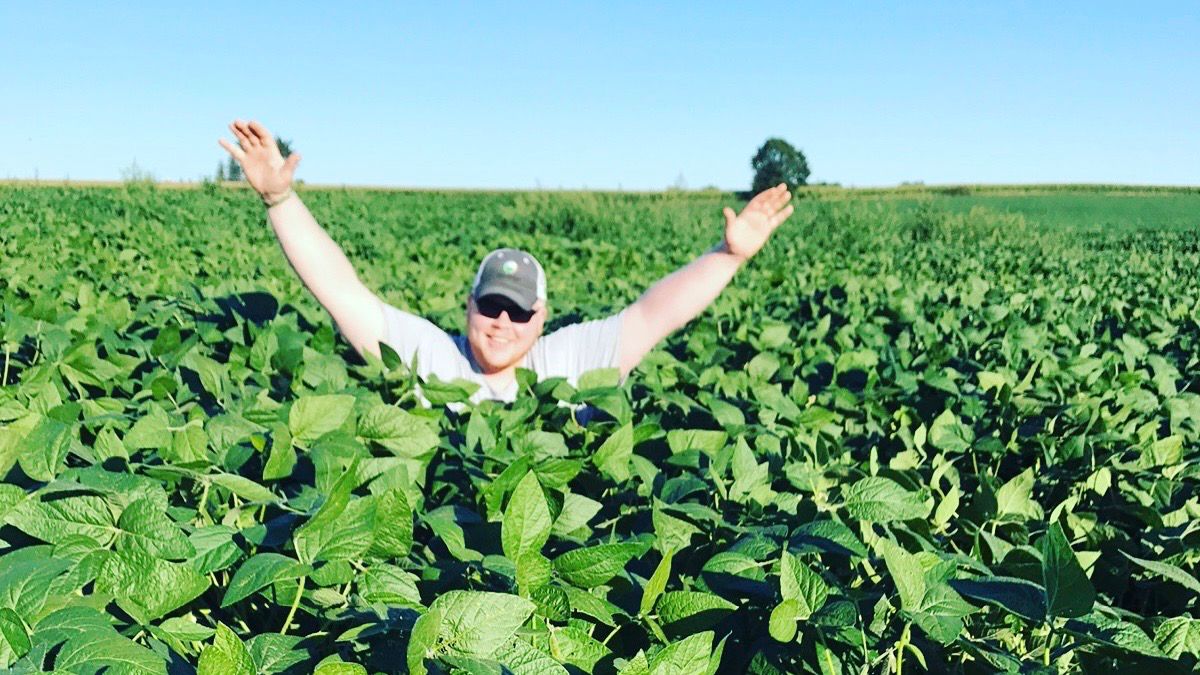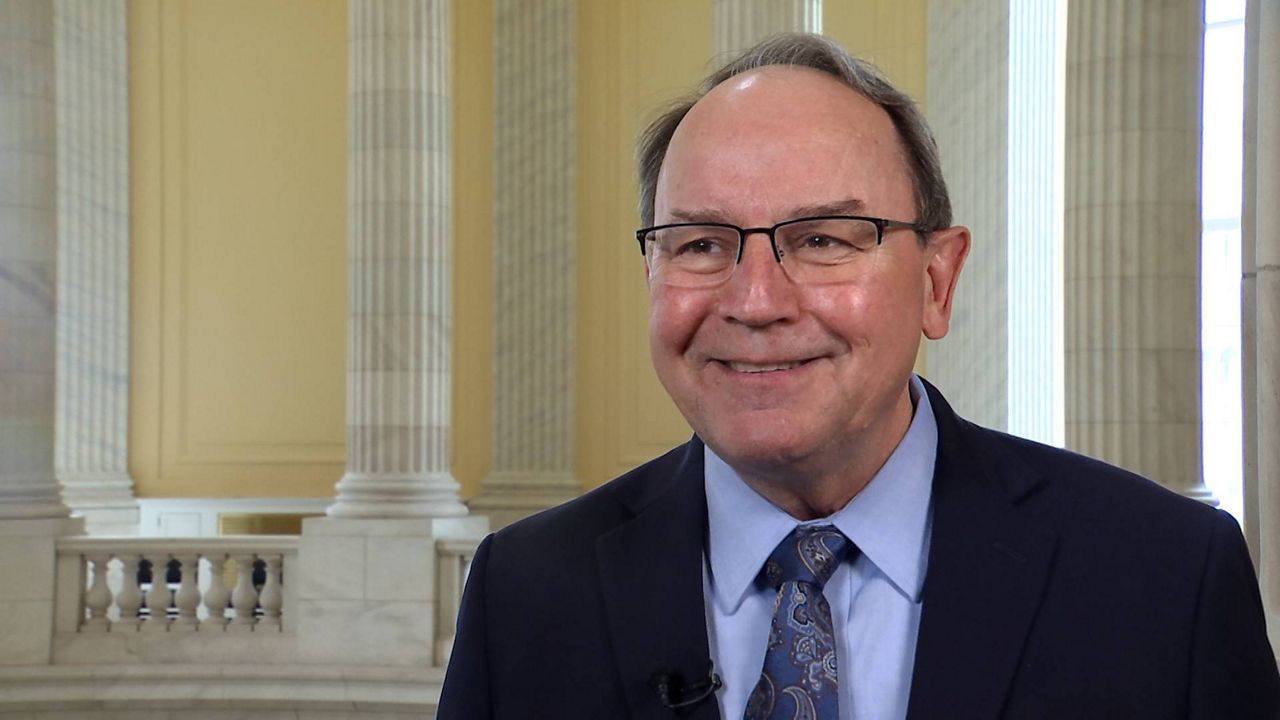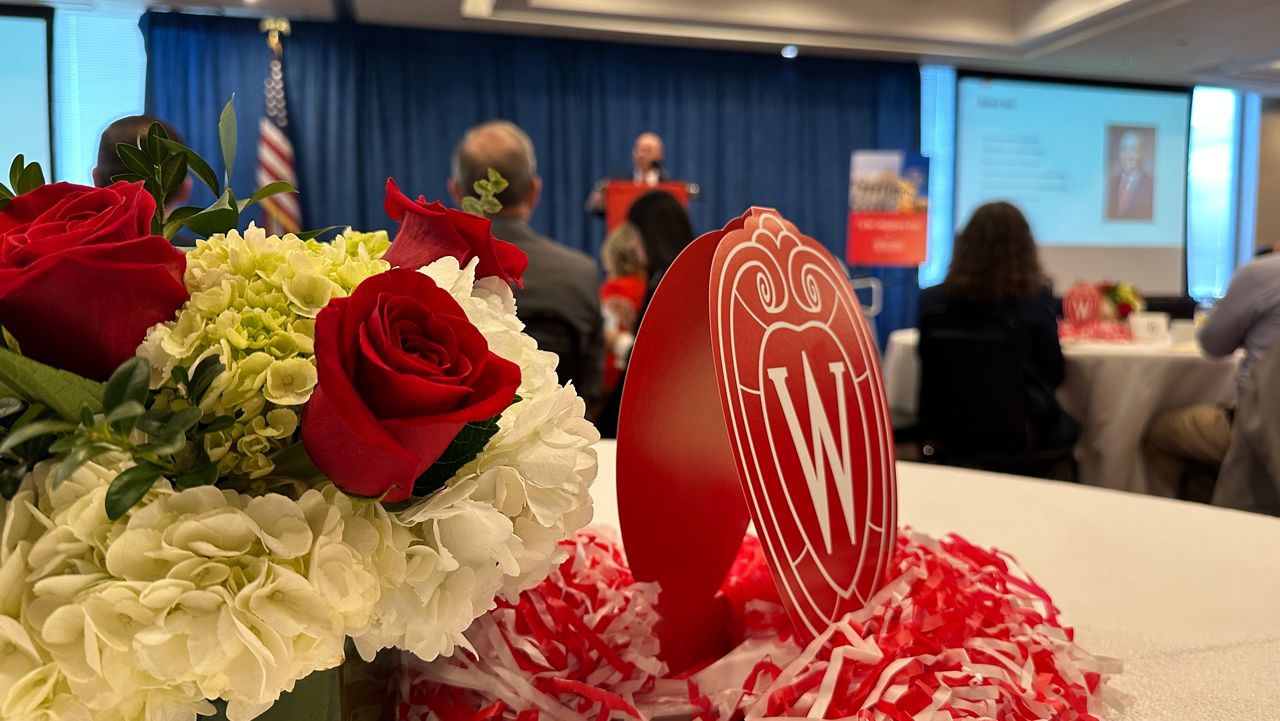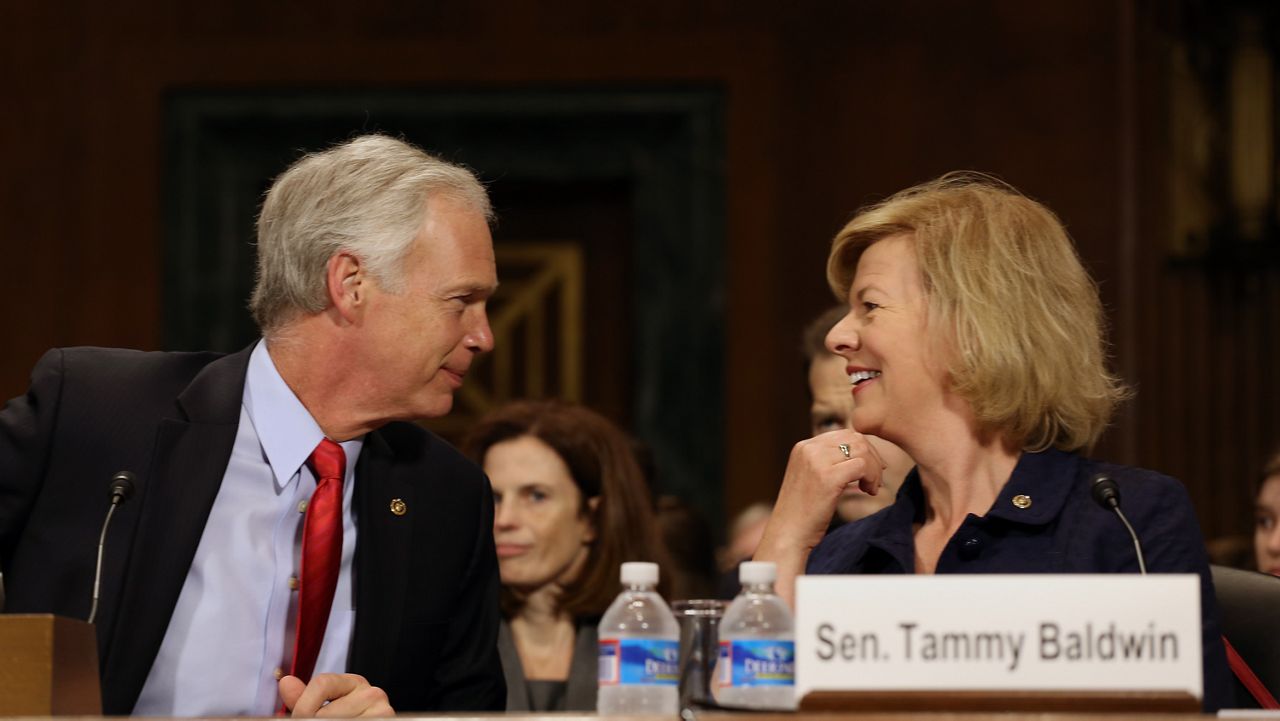WASHINGTON — Tanner Johnson, a 31-year-old soybean farmer in Barron County, Wis., said it’s not hard to imagine how the tariffs China is placing on American products will hurt U.S. farmers.
“China buys one in four rows of soybeans,” he said. “Before 2018, they used to buy one in three rows of soybeans. So, that's evidence right there of that relationship already being negatively impacted.”
When President Donald Trump and China engaged in a trade war during his first term, China turned to Brazil for some of the soybeans that it had imported from the U.S.
Now, another trade fight is escalating.
The President imposed 145% tariffs on imports from China, and China slapped a 125% tax on American goods in return. But for U.S. farm products, China’s levy is higher. The American Soybean Association estimates it is well over 140% for soybeans.

“It's not a very pleasant number to look at,” Johnson said.
China is the biggest buyer of U.S. soy, which is Wisconsin’s biggest export after dairy products. But Johnson said soybeans are worth half as much as they were two years ago.
“I couldn't tell you if we are down from [President Trump’s] inauguration, but we're certainly not up,” Johnson said. “We were coming down for the last two years; we've been progressively dropping, dropping, dropping. So, I'm not blaming it on this administration or anything like that, but we are really hoping for a long-term trade deal with China and other export markets to hopefully bring some stability to that market and get it climbing upwards.”
Because of the depressed market and uncertainty surrounding tariffs, farmers are finding it more difficult to borrow money.
“All those agents will hedge on the side of security, so loans won't get made, crops won't get planted, soybeans won't get grown, and they won't get sold,” said Thomas Kemp, chair of UW-Eau Claire’s economics department. “That means lost jobs, lost incomes, and honestly lost soybeans at the end of the day.”
Johnson, who is also on the executive committee of the American Soybean Association, praised the Trump administration for exempting the potassium fertilizer he uses from the tariffs on Canadian goods and putting a 90-day pause on retaliatory tariffs against countries. But tariffs, he said, will increase other costs, including for equipment, so it’ll be more expensive to produce soybeans that are worth less.
“I just know that in the meantime, I lose a little sleep at night.”“I am an optimist, and I do think that there will be some long term trade deals struck,” Johnson said, adding that the European Union, Canada, and Mexico are all big buyers of U.S. soybeans too. “I just know that in the meantime, I lose a little sleep at night.”
Agriculture Secretary Brooke Rollins said there will be short-term pain for farmers, but the goal is to help them eventually increase exports.
"We believe that these changes will in short order create unlimited and unprecedented prosperity for these farmers, but if not, the USDA is there in the short term to ensure, just as we did in term one, that our farmers are taken care of,” Rollins said.
In President Trump’s first term, his administration paid billions in additional subsidies to farmers to help make up for lost income, but the payments did not fully reimburse many farmers for their losses.
On Tuesday, White House Press Secretary Karoline Leavitt said the President is considering providing “relief” to farmers once again.
“I think it could come to that,” Johnson said. “As much as the general public doesn't want to see another payment made to farmers, farmers don't want that even more… We just want an opportunity to keep selling to these markets and developing new ones.”











